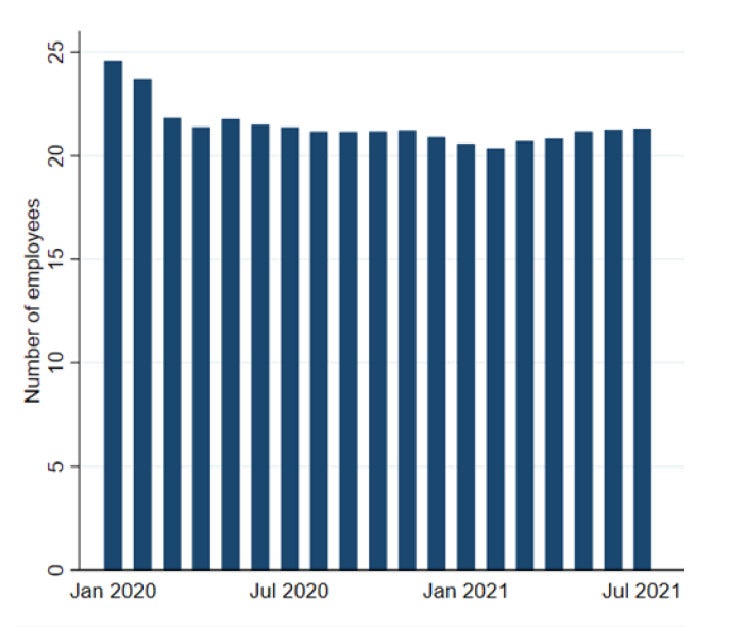 Sales have recovered faster from the pandemic than employment in Zambia / Photo: Arne Hoel
Sales have recovered faster from the pandemic than employment in Zambia / Photo: Arne Hoel
Like most other countries, the government of Zambia introduced restrictions to control COVID-19, which considerably curtailed normal economic activity. A new WIDER and World Bank working paper, a multi-institutional collaboration of UNU-WIDER, the World Bank, the Zambia Revenue Authority and the University of Zambia, draws on findings from both tax administrative and survey data providing insights on how formal firms in Zambia have recovered from COVID-19.
The study tracks how formal firms in Zambia were impacted by and have recovered from the pandemic. It is the first effort to combine both survey and tax administrative data to measure the initial decline and subsequent recovery of firm sales and employment in a low- or lower-middle-income country . The findings are highly relevant to other low- and middle-income countries, particularly those in Sub-Saharan Africa.
While sales have recovered, employment levels have not
Our study shows an initial decline and subsequent recovery of firms’ output. In June 2020, most formal firms reported a large decline in sales and a moderate fall in employment. By July 2021, most firms had experienced a complete recovery in their sales, however, levels of formal employment kept falling (see Figure 1). In fact, the share of firms reporting a decrease in their number of employees more than doubled. A detailed investigation across both data sources does not suggest that these overall findings are due to improvements in formal sector labour productivity. There is no evidence to suggest that firms increased average wages for the employees they retained or that there were large shifts between relying on full-time compared to casual employees. Neither was there a large number of new firms entering the formal sector. However, as we focus on only formal sector employment, we do not know the extent to which workers previously in formal employment have moved to the informal sector and maintained their productivity.
We also study the structural and firm-specific characteristics associated with an initial decline and subsequent recovery of formal firms. The sales of large and medium-sized firms recovered faster than the sales of smaller firms. In addition, despite being hardest hit, the retail sector recovered slightly slower in sales than other sectors. A stronger recovery in formal employment was more closely associated with firm-specific factors, such as the level of experience of the top manager. Furthermore, receiving COVID-related financial support from the government was associated with a recovery in formal employment. This suggests that it had a measurable impact on the economic recovery .
Figure 1: Average reported number of employees of formal firms in Zambia

A need to foster formal employment
Our study suggests that many formal firms have rebounded from the crisis by reducing labour inputs. This pattern of a weak recovery of formal employment has also been observed in several emerging-market economies. In other words, the pandemic has wiped out years of progress in the formalization of labor markets around the world. Ultimately, this means many more people are in vulnerable situations as they lack access to secure employment . Furthermore, this reduces the ability of governments to raise funds for public goods and services as there is relatively less income tax being paid.
The key implication for policy-makers is that there is a need to foster greater recovery of employment among formal firms in Zambia. Significant numbers of workers who were previously employed by formal firms no longer had formal jobs over a year after the pandemic began. This means that across the economy as a whole, formal employment has not rebounded to anywhere near pre-pandemic levels. If this is a persistent change, lower levels of formal employment in low- and lower-middle-income countries may be a concerning consequence of the COVID-19 pandemic that will linger for several years to come.
A potentially promising sign from the analysis we present in this study is that firm-specific factors, including manager experience, appear to be associated with whether a formal firm experienced a decline or recovery in employment. This suggests that firms’ have some scope to take action to increase their number of employees. Finding the right actions that will have the biggest impact is the next step.






Join the Conversation